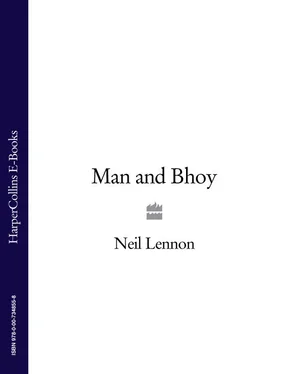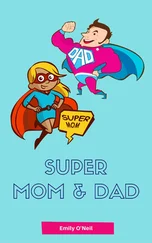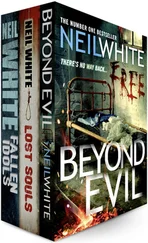My parents always did their best to shield us from the Troubles but there were occasions when the grim realities of that time just could not be avoided, as when the hunger strikers died. Mostly, however, we just tried to get on with our lives as normally as possible, which I suspect was the attitude of the vast majority of people in Lurgan and elsewhere in Northern Ireland.
The price of safety was constant vigilance. My mother and father would watch out like hawks for any problems in the streets around our house and at the first sign of any trouble we would be hauled indoors. ‘Trouble’ usually consisted of gangs of boys taunting the security services or throwing stones at police vehicles. The girls kept out of the road but it was accepted practice for boys of my age and older teenagers to take part in this frequent ritual. I have to confess I got caught up in a couple of episodes of stone-throwing largely because it was second nature to several friends of mine. Peer pressure can be a terrible thing at that age, and it was only later when I had moved to England that I realized that the police had actually been there to protect us. Of course I would later require their services on a couple of occasions in Belfast, as I have already described.
You could try to avoid the Troubles, as we did as a family, but you could never ignore them. One of my uncles on my father’s side had been born long before the Beatles came on the scene or else my grandparents might have called him something other than John. He was stopped by the police one night and of course they asked him for his name. ‘John Lennon,’ was his truthful reply. ‘Aye,’ said the cop, ‘and I’m John Wayne,’ before throwing him in the back of the police vehicle.
A real character, my uncle John sadly died three years ago. But then all the Lennons were characters. My father’s brother Francie went to a big Gaelic football match at Croke Park in Dublin, and that was the last my grandfather Frank and grandmother Jane saw of him for ten years. He joined the Irish Navy and in 1953, was the wireless operator who intercepted the first distress signal from the Stranraer-Larne ferry Princess Victoria which sank in the Irish Sea during a massive storm, with the loss of more than 130 lives. He later went to England and joined the RAF, ending up in Hull.
I have vivid memories of many of the major events of the Troubles when I was growing up, such as the murder of Airey Neave MP, the bombing which killed Earl Mountbatten, and the explosions which killed eighteen soldiers at Warren-point. That last incident took place on a bank holiday at a place just down the road from Lurgan, so the whole area was very tense for some time afterwards with police and soldiers everywhere.
As I grew older, I became more aware of the history and tragedies which had led to the Troubles, but I did not let things influence me and was never tempted to get involved in politics. To be truthful, I was just too busy playing football and Gaelic football to get sucked into what was going on around me.
As for religion, I was raised a Catholic. I was baptized in St Peter’s Church in Lurgan and made my first Holy Communion and received confirmation in St Paul’s Church which served Taghnevan. The influence of my parents was strong—we were taught to live as Christians and show a good example, rather than flaunt our religion ostentatiously.
The people of Lurgan lived for their sport. Football, or rather soccer, was followed avidly in the town, but there was also a great deal of interest in horse racing and boxing, and in the Nationalist areas of the town, Gaelic football was played with a passion. There were about ten Gaelic football clubs and school teams in the town at one time or another. Hurling was nowhere near as popular as football of either variety, and there were quite a few of us who played both Gaelic football and soccer, though in some parts of Ireland that was very much frowned upon—soccer was seen as an alien English game by Irish cultural traditionalists.
Practically since I had learned to walk I had kicked a football around, playing with my mates in the streets or local parks and playgrounds. But it was thanks to the schools and local boys’ clubs that I got to play ‘proper’ organized matches on real pitches.
I attended St Joseph’s Primary School in Lurgan, known as the infant school, for the first three years of my education, followed by St Peter’s for primary four to seven. The two schools were beside each other and were later amalgamated into St Thomas’s.
After St Peter’s I attended St Paul’s junior high school, where I sat and passed the exams which enabled me to go on to St Michael’s Grammar School, which was the senior high school for the Catholic youth of Lurgan.
I think I was a good pupil and tried hard to learn, but in all my schools my main interest was football. We played bounce games in the playground with piles of jerseys for goalposts, after school was finished we would go home for our dinner and then go back out to play more football in the local parks, as long as there was light to play by.
I soon realized that I loved football and was not too bad at it at all. There were other young boys around the town who were pretty good, too, one of them being Gerry Taggart, who you will read more about later.
The only thing that caused more excitement in school than football was a playground scrap. There would be a big circle of us, maybe three or four deep, around the two combatants, and we would egg on the fighters, especially if one of them was a mate. Nobody ever got really badly hurt in those schoolboy battles, and invariably the teachers would arrive to break them up and we would soon get back to playing football.
Despite the Troubles and economic recession, Lurgan’s people were very resilient and there was a great determination on the part of many men and women that the children of the town should lead as normal lives as possible.
When I look back and think of all the sacrifices that people made just so we could get a game of football I am in awe of their commitment to the sport. Getting us kit and a place to play, transporting us all over the county and beyond, coaching us, keeping us safe and arranging for some of us to be looked at by senior teams—and all this against a background of the Troubles. Later in life I was able to repay some of my debt to those people in Lurgan by donating some money for training younger children to play football. But it was small change compared to what I and many other players owed for the start we were given.
I will be eternally grateful to Dessie Meginnis in particular. He was the local ‘Mr Football’ and took me under his wing from the very start when I joined Lurgan Celtic Boys Club at the age of ten. Dessie was the Pied Piper of Lurgan—wherever you saw him he had a bag of footballs and a bunch of kids following him. He had the nickname ‘bunker’, but I never found out why.
His enthusiasm for football was infectious, and no one knew more about the schoolboy scene in Northern Ireland than Dessie, who also had good links with Celtic in Glasgow. It’s amazing to think that he started the careers of Gerry Taggart and myself on more or less the same day in the same boys’ team, and we both went on to play for Northern Ireland. Dessie not only taught you good habits on the field but he also encouraged you to behave well off it. He would say things like ‘be first on the training ground and the last off it’, and give you a friendly word of encouragement when you needed it. I still call or go to see him for advice to this day.
My dad always supported me in my football ambitions but he tended to stay in the background. Mum and he provided me with my early boots and strips, as I used to beg them for football equipment each Christmas, but Dad rarely came to watch me play, though there was a good reason for that. He had gone to see me a couple times but did not like the comments and the actions of parents on the sidelines. Dad was worried that if he came to a match and somebody criticized me, he would lose his temper and smack them, so he chose to stay away. He was quite right, too, because some of the insults were terrible, and the worst offenders were often women who clearly did not realize the pressure they were putting on young children.
Читать дальше











